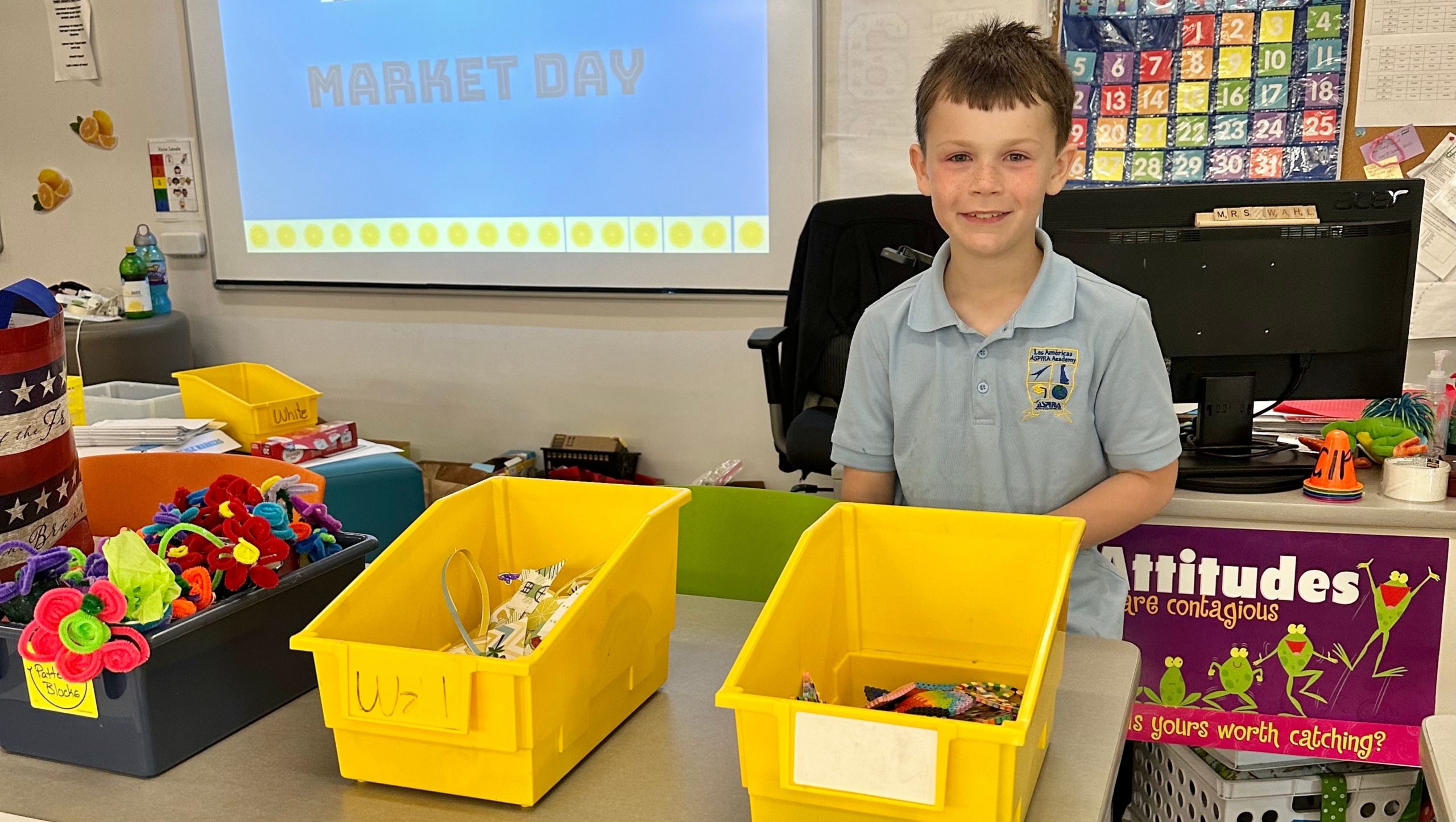Each spring, Aspira Academy comes alive during the University of Delaware’s Center for Economic Education and Entrepreneurship (CEEE) Mini-Society Market Week, an immersive experience, sponsored by the Delaware Council on Economic Education with generous support from M&T Bank, where third-grade students become business owners and the entire school becomes their marketplace. Desks transform into storefronts, product pitches echo through classrooms, and student consumers line up to purchase hand-crafted pillows, bracelets, painted rocks, and even spa services. The tradition brings learning to life and unites the school community around a shared celebration of creativity, economics, and collaboration.
Leading this energetic experience is third-grade teacher Jennifer Wahl, who has run the Mini-Society program in her classroom for the past eight years. She calls it her “absolute favorite unit of the school year.” Her dedication has made the program a signature part of the third-grade experience at Aspira, and a much-anticipated highlight for students and staff alike.
Wahl takes the traditional Market Day model a step further by hosting an extended Market Week, which allows more time for exploration and participation. After each student brainstormed and developed unique product ideas totaling 108 this year, students voted on their favorites. The winning concepts were mass-produced by student teams and sold to the entire school. Students take on leadership roles, gaining firsthand experience with teamwork, production, supply, pricing, and demand.
When products don’t sell well on the first day, students quickly learn to adapt. They revisit pricing strategies and rework product messaging. These real-time problem-solving experiences allow students to apply classroom economic concepts while building resilience, adaptability, and critical thinking skills. By the end of the week, they’ve practiced what it means to be thoughtful producers, informed consumers, and effective collaborators.
In a meaningful extension of the unit, all proceeds from Market Week are donated to Alex’s Lemonade Stand Foundation, teaching students about giving back and the real-world impact of their economic decisions.
Wahl first attended a Mini-Society training hosted by CEEE nearly eight years ago, and she still keeps her original binder of materials on her desk. The stories, lessons, and teaching strategies continue to be an essential part of her classroom.
“My students enjoy the stories so much,” Wahl said. “They align perfectly with what we’re learning—how to create a product, how to sell it, and how to think like entrepreneurs.”
Thanks to Wahl’s enthusiasm and commitment, Mini-Society has become a defining part of the third-grade experience at Aspira Academy. It’s a schoolwide tradition and a powerful tool for student growth.
That kind of learning environment is exactly what the CEEE Mini-Society® program is designed to support. An interdisciplinary, experience-based unit designed for students in grades 3–5, the program guides classrooms in developing their own economic systems—complete with currency, laws, businesses, and a functioning marketplace. The Center provides educators with a step-by-step manual, engaging stories and activities that reinforce economic concepts, training from experienced educators, and practical strategies for classroom integration.
Whether seasoned or brand-new, educators leave CEEE’s Mini-Society training equipped and inspired to build classrooms filled with curiosity, collaboration, and creativity. As a new school year approaches, dozens of Delaware teachers can prepare to launch their own thriving Mini-Societies—one jewelry store, garden shop, or spa at a time – by joining CEEE’s summer one-day training.




